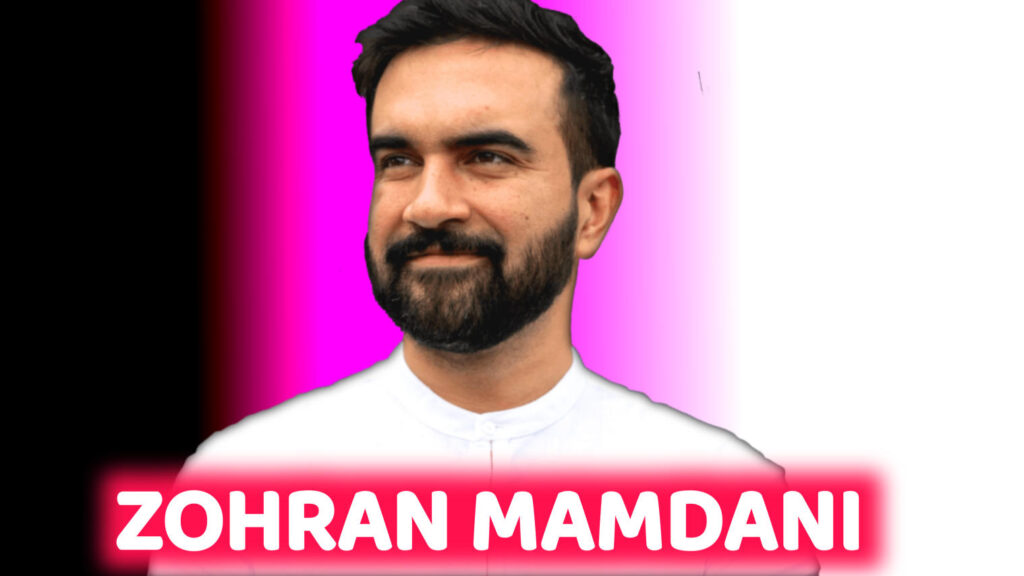Shakes Up NYC Politics
In an unexpected political shift that’s sending ripples across New York City and beyond, Zohran Mamdani, a 33-year-old progressive of Indian-Ugandan descent, has emerged victorious in the Democratic primary for NYC Mayor—defeating none other than political heavyweight and former New York Governor Andrew Cuomo.
This surprising upset wasn’t just a win for Mamdani; it signified a resounding message from grassroots voters who’ve long felt ignored by establishment politics.
The Rise of a Progressive Voice
Zohran Mamdani isn’t new to public service, but few expected his swift ascent to this scale. Born to a multicultural household—his mother a well-known filmmaker and his father a music historian—Mamdani’s roots blend activism, creativity, and community consciousness. A sitting Assemblymember representing Astoria, Queens, he became known for pushing housing justice, tenants’ rights, and Palestinian solidarity.
Mamdani’s campaign wasn’t powered by billionaires, endorsements from mega-donors, or flashy TV ads. Instead, it was built on town hall meetings in church basements, TikTok livestreams with Gen Z, door-to-door canvassing, and a powerful coalition of tenants, labor groups, climate advocates, and young voters hungry for change.
His bold platform—centered around universal rent control, public banking, fully funded public transit, and dismantling NYPD’s bloated budget—was once considered too radical. Now, it’s winning elections.
A Historic Defeat for Cuomo
For Andrew Cuomo, this defeat is more than just a political loss; it’s a symbolic fall from grace. Once dubbed “America’s Governor” during the height of the COVID-19 pandemic, Cuomo resigned in 2021 following sexual harassment allegations and federal investigations into nursing home data manipulation. While he maintained pockets of loyal supporters, his return bid was controversial from the start.
Cuomo’s campaign leaned heavily on his past achievements: economic growth, infrastructure, and handling of crises. Yet, voters seemed more focused on his controversies, old-school political style, and lack of resonance with current youth-driven progressive priorities.
Despite outspending Mamdani nearly 7-to-1, his campaign lacked the grassroots energy needed in an era defined by digital mobilization and neighborhood-based politics.
The Voters Speak
Voter turnout across several boroughs—particularly Queens and Brooklyn—reached record highs for a local primary, underscoring the public’s hunger for systemic reform. Notably, turnout among first-time voters and people under 35 surged compared to previous primaries.
In exit polls, many cited Mamdani’s authenticity, vision for social equity, and responsiveness to local issues as major reasons for their support. One young voter from Bushwick said, “He’s not a celebrity politician—he’s someone who understands our struggle with rent, policing, and climate fear.”
Another voter, a Bangladeshi small-business owner in Jackson Heights, added, “We finally feel like we have someone who listens and speaks our language—not just literally, but culturally and politically.”
Implications Beyond NYC
Mamdani’s victory sends a clear signal to both national Democrats and local political veterans: The progressive wave isn’t fading—it’s evolving. The win mirrors recent upsets in other parts of the country, where young, left-leaning candidates have ousted longtime incumbents.
Political analysts believe Mamdani’s campaign strategy could become a blueprint for future candidates running in diverse, urban communities. By focusing on neighborhood storytelling, social media organizing, and multilingual outreach, he managed to unite segments of society often left fragmented in electoral maps.
It also challenges the conventional wisdom that only moderates can win in major cities. Mamdani’s platform—dismissed by critics as idealistic—is now mainstream, with topics like free public transit, rent caps, and police reform being debated seriously in political circles.
Reactions Pour In
Progressives across the U.S. celebrated the win. Representative Alexandria Ocasio-Cortez congratulated Mamdani in a post, calling his campaign “a beacon of what people-powered democracy looks like.” Vermont Senator Bernie Sanders, who endorsed Mamdani early, said, “Tonight is a major step forward for working-class people across this country.”
Meanwhile, some centrist Democrats have expressed concern. One unnamed senior DNC strategist told reporters, “This changes the math going into 2026. We can’t ignore the momentum progressives are building in cities.”
Andrew Cuomo, in his concession speech, acknowledged the shift. “The people have spoken. They chose a different direction—and while I don’t agree with all of it, I respect it.”
What’s Next?
Zohran Mamdani’s general election challenge is likely to be less intense, as NYC remains heavily Democratic. Still, Republicans may attempt to capitalize on concerns about crime and taxes, framing Mamdani as too far left.
However, Mamdani appears unshaken. In his victory speech outside a packed Astoria community center, he said:
“This isn’t my victory—it’s yours. It’s the tenants tired of evictions, the youth afraid of climate collapse, the workers who deserve dignity. Today, we’ve proven that organizing works, that dreaming big isn’t foolish, and that democracy—when fueled by love and justice—can beat money and power.”
With the spotlight now on him, Mamdani’s every move will be scrutinized. But one thing is clear: New York City’s political landscape has shifted, and it’s more inclusive, diverse, and progressive than ever before.

